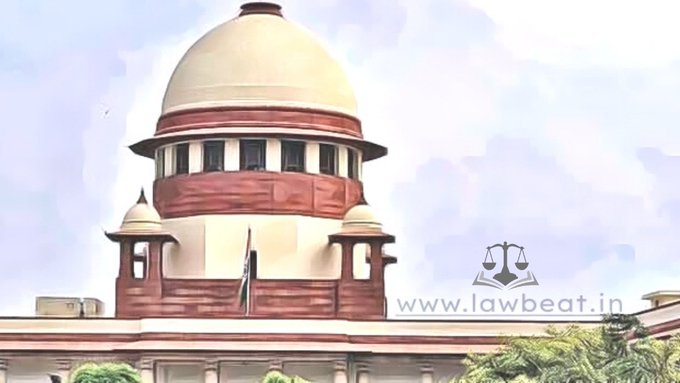"Aberration": SC modifies HC's judgment of varying sentences between 9 yrs to 11 months in culpable homicide case

"The sentencing in this case, to put it mildly, is inexplicable (if not downright bizarre)," said the court.
The Supreme Court has modified the Punjab and Haryana High Court's "flawed" judgment of sentencing eight convicts in a case of culpable homicide not amounting to murder due to rash and negligent act, by awarding them varying jail terms between over 9 years and 11 months, already undergone by them.
"The sentencing in this case, to put it mildly, is inexplicable (if not downright bizarre)," a bench of Justices S Ravindra Bhat and Dipankar Datta said, finding the judgement as "aberration".
The court partly allowed an appeal filed by complainant Uggarsain against the High Court's 2019 decision in the case related to a sudden fight between two groups, resulting into death of one person.
The High Court here converted conviction of the eight accused from 302 to 302 II of the IPC, saying tempers were running high between the parties, and sudden fight occurred when the complainant party reached in front of accused’s house, which meant that the accused did not act in a pre-meditated manner.
The complainant contended sentencing in the present case had to be fit and appropriate, and the impugned judgment gravely erred in adopting the standard of sentence undergone, which resulted in widely different and disparate results.
Agreeing to their contention, the bench held, "The impugned judgment, in this court’s opinion, fell into error in not considering the gravity of the offence. Having held all the accused criminally liable, under Section 304 Part II read with Section 149 IPC and also not having found any distinguishing feature in the form of separate roles played by each of them, the imposition of the 'sentence undergone' criteria, amounted to an aberration, and the sentencing is for that reason, flawed."
In the case, the court pointed out, on the one hand, accused Krishan underwent sentence of 9 years and 4 months- at the other end of the spectrum, Sunder underwent only 11 months.
"No rationale appears from the reasoning of the High Court for this wide disparity. It is not as though the court took note of the role ascribed to the accused (such a course was not possible, given the nature of the evidence)," the bench said.
The bench also said if it were assumed that the age of the accused played a role, then Krishan, at 61 years--who served 9 years -- and Brahmajit, who had served in the army, and was detained for over 8 years got the stiffest sentence. On the other end of the scale, younger persons were left relatively unscathed, having served between 3 years and 11 months.
The court, thus, held that given the totality of circumstances (which includes the fact that the accused have been at large for the past four years), the appropriate sentence would be five years rigorous imprisonment.
It modified the sentence of Raju, Parveen, Sunder s/o Amit Lal, Sandeep, Nar Singh, and Sunder s/o Rajpal and ordered them to undergo rigorous imprisonment for five years, by surrendering within six weeks to serve remaining term.
The bench also emphasised, "this court has, time and again, stated that the principle of proportionality should guide the sentencing process".
It cited a number of Supreme Court's judgments including in 'Ahmed Hussein Vali Mohammed Saiyed v. State of Gujarat (2009) wherein it was held that the sentence should “deter the criminal from achieving the avowed object to (sic break the) law,” and the endeavour should be to impose an “appropriate sentence.”
